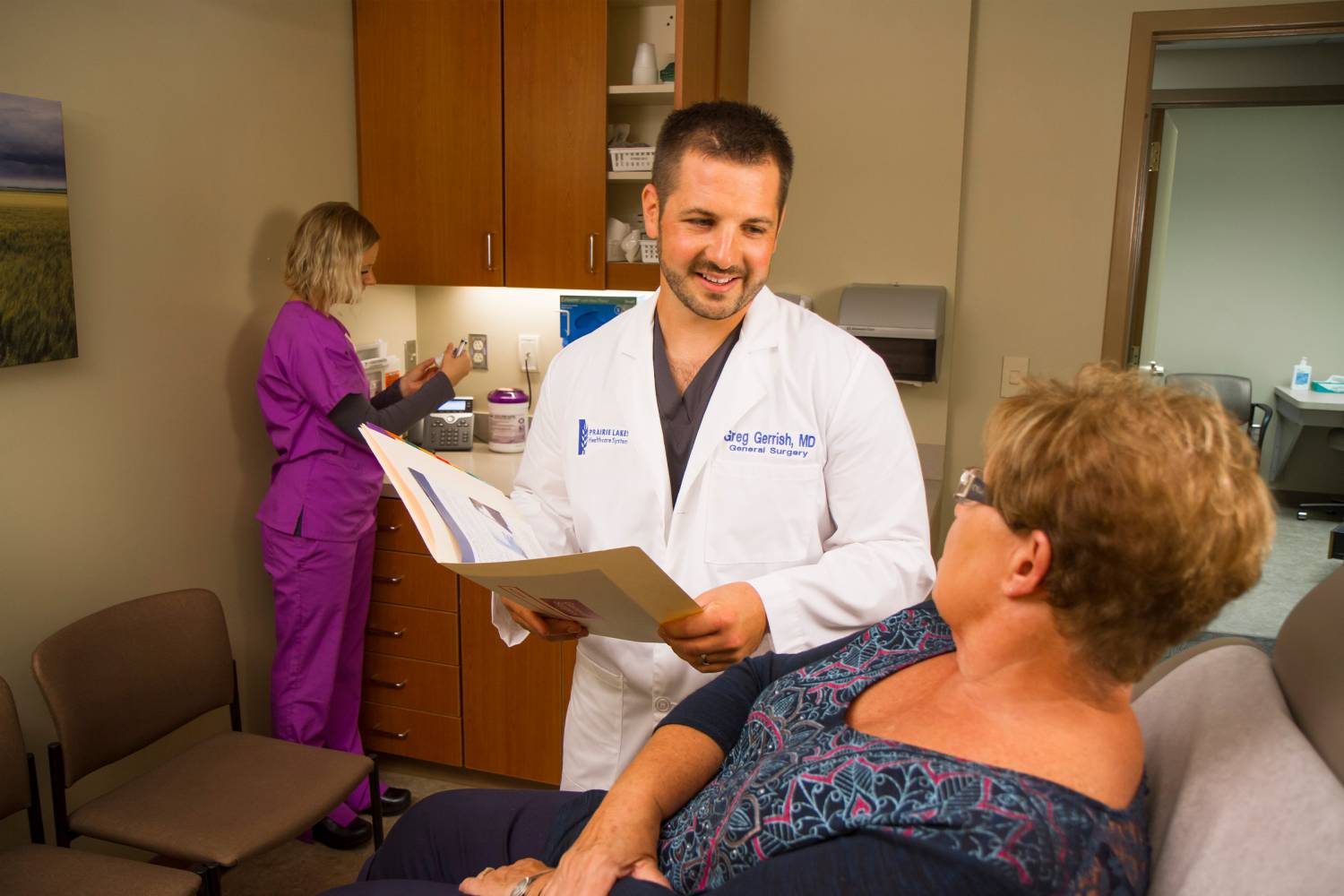The American Cancer Society recommends those at average risk* for colorectal cancer to start regular screenings at age 45. A colonoscopy doesn’t take a lot of time, but this simple procedure offers a big payback: peace of mind. Colorectal cancer is deadly, but treatable if it’s caught early. The majority of colonoscopic exams turn up no lesions at all, and in many other cases polyps and other suspicious growths can be removed during the colonoscopy.
A colonoscopy is an endoscopic examination of the rectum, colon and part of the small intestine. A tiny camera on the end of a long flexible tube, lets the doctor perform a non-surgical, real-time examination of your colon.
The entire procedure takes little more than a couple of hours. The biggest challenge is the preparation beforehand, and it’s important to follow the prep directions carefully. Sedation or anesthesia ensures that the process is painless. You wake up a short time later, and you’re soon ready to go home.
*According to the American Cancer Society, people are considered to be at average risk if they do not have:
- A personal history of colorectal cancer or certain types of polyps
- A family history of colorectal cancer
- A personal history of inflammatory bowel disease (ulcerative colitis or Crohn’s disease)
- A confirmed or suspected hereditary colorectal cancer syndrome, such as familial adenomatous polyposis (FAP) or Lynch syndrome (hereditary non-polyposis colon cancer or HNPCC)
- A personal history of getting radiation to the abdomen (belly) or pelvic area to treat a prior cancer
Direct Access Colonoscopy
If you qualify, a Direct Access Colonoscopy can save you time and money since a separate consultation visit is not needed.
NOTE: This program is only available for colonoscopies in the Watertown, South Dakota service area.
Contact us to see if you qualify for a Direct Access Colonoscopy. Just fill out the form below or call the General Surgery Clinic at 605-882-6852 to talk to a nurse.
Note: Upon submission of this form, a nurse will contact you to discuss if you qualify for a Direct Access Colonoscopy.
